I’ve been taking my time on writing a reaction to 55-year-old Scottish actor Peter Capaldi (World War Z, In the Thick of It) being cast as the 12th (13th?) Doctor. I’m still processing how I feel about the trilogy of Matt Smith’s final episodes. I’ve loved Doctor Who since I was a little kid watching Jon Pertwee episodes on a tiny black & white TV screen with my dad during those late night PBS broadcasts. One of the reasons my husband and I connected was over the Doctor and I’ve made countless friends and even professional connections through bonding over our shared fandom. Watching the 50th Anniversary Special’s live broadcast with 200+ geeks taking over a local pub, and then watching the 3D theatrical showing a few days later with even more fans, and then attending Chicago TARDIS during this milestone show anniversary year, have been some of the best fandom experiences I’ve ever had.
The problem is, ever since the news of Matt Smith’s departure broke, I’ve been heart-breakingly disappointed in a lot of Doctor Who fandom. At the “Typecasting the Doctor” panel I participated on at Chicago TARDIS, we were asked what we thought the most disappointing thing about the new Doctor’s casting was. My answer wasn’t about the missed opportunities of the casting process or any of Moffat’s comments about gender and the Doctor – it was about the vehement, vicious racism, misogyny and transphobia reflected in many, many reactions in the fandom to the mere suggestion that the Doctor could be anyone but a white man (this was definitely one of those instances where “Don’t read the comments” was excellent advice in avoiding the worst of it). It was a startling and sobering reminder that when it comes to inclusiveness in Doctor Who fandom, if push comes to shove, it’s still far more inclusive of some more than others, and there’s still a lot to be critical of.
When the BBC announced last June that Matt Smith was leaving the show and the 2013 Christmas Special would end with the Doctor’s regeneration, the internet exploded in furious amounts of speculation, including passionate debate over whether or not the Doctor could be or should be a person of color of either gender and whether or not the Doctor could be or should be a woman. Much of the debate that ensued was toxic, and while that toxicity eventually dialed back to a simmer, with the news of Capaldi’s casting the following August, it went right back to a boil again. And it’s left one hell of a burn mark.
Let’s get several things straight right out of the gate: Yes, I would have loved for the next Doctor to be a woman of any race, or a nonwhite man. No, I don’t think Capaldi’s casting decision was due to a cabal of nefarious racist misogynists so much as it was the result of cultural inertia and unexamined internal bias. No, I do not think Capaldi will be an awful Doctor. No, I don’t think there’s anything wrong with the Doctor being older (and seriously, the ageism directed at Capaldi’s casting was ridiculous – let’s note that over the course of Doctor Who’s 50 year history, the Doctor’s age has not be limited to getting younger and there’s no reason that the Doctor had to be played by an actor under 40). I’m interested to see what kind of edge he’ll bring to the character, given his previous work. While I’m not too familiar with Capaldi outside of his two appearances in the Whovian universe (Caecilius in Doctor Who S4’s “Fires of Pompeii” and John Frobisher in Torchwood: Children of Earth, and good luck expecting the show writers to bother explaining how the Doctor happens to resemble those characters) by all accounts he’s a brilliant actor and has been such a big fan of Doctor Who to the extent that he even wrote to fanzines. I can only imagine how excited he is to join the long line of actors playing a favorite iconic science fiction character that he clearly has deep affection for.
A long line of actors that is also comprised entirely of white men.
What troubles me is that it seems there was barely a chance for the Doctor’s 12th incarnation to be played by any actor other than a white man. Yes, I’ve seen Gaiman’s assertion that, once upon a time, the part of the Doctor was offered to a black actor, who turned it down (given the furor over the idea that the Doctor might change race and/or gender, I don’t really blame that unnamed actor for turning down the role). No, that doesn’t mean there was no racism at play in the casting process. Claiming that the instance of one single actor of color being offered the part of the Doctor, therefore no racism ever, is like claiming that just because Barack Obama was elected to two terms as president of the United States, there are no more barriers to people of color who might run for President.
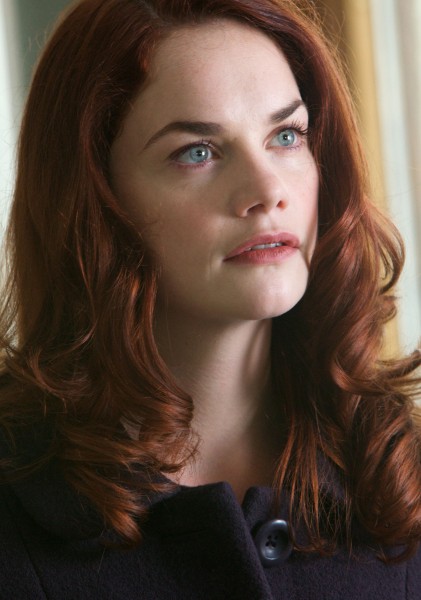
Ruth Wilson would have been my pick for the next Doctor. Because she is awesome and the Doctor would finally have been ginger.
Everyone’s entitled to their preferences, which we all have for our own variety of reasons. That’s fine and dandy. Everyone’s allowed to feel elated – or not – about Capaldi playing the 12th Doctor. The problem is that there have been a lot of people trying to use their preferences to justify that the Doctor must remain a white man, otherwise the show will be ruined forevermore and the PC-hordes will have killed Doctor Who (or at least killed their love for the show). As tallblackguy put it to me:
When a woman, or a black dude, or someone other than the “default” – meaning “white” – would break your love of a character? Of a universe? Of a fiction? That’s pretty…wow. That’s a lot of power that woman or non-white person has.
The unfortunate prevailing thought is that for something to be racist or sexist, it has to be perpetuated with malicious intent by, as Jim C. Hines recently described, “mustache-twirling villains in top hats,” but as the saying goes, “Intent isn’t magic.” Racism and sexism in varying degrees and forms have been so deeply normalized in much of our everyday experiences, the media we consume and the cultural messages we absorb, that unexamined biases and assumptions continue to contribute heavily to racial and gender disparities, regardless of whether or not one intends to be racist or sexist. I doubt most people who have argued that the Doctor “must be” a white man actually intend to be racist or sexist, but regardless of intent, the impact remains. The status quo will only become open to more possibilities if we dig into those assumptions and biases.
There have been a lot of repeating logic pretzels resulting from attempts to justify the notion that none of the opposition to a nonwhite actor who may not be a man ever playing the Doctor had anything whatsoever to do with racism or sexism, so I’ve attempted to break down the ones I saw most commonly.
1. The Doctor has never been anything other than a white guy!
If the Doctor hasn’t been anything other than a white man, it’s because there’s been no impetus to make the character anything else, not because the character can’t be anything other than a white man. Chuck Wedig had an excellent point about cultural inertia in his piece about genderflipping the Doctor:
…the cultural status quo and the financial weight lies with keeping things the same. The Doctor of Doctor Who has always been a white dude. Cultural inertia and financial interest is stronger when that remains true.
There is absolutely nothing about the character that requires a white man is all the character ever can or should be. For one, the Doctor isn’t human, he’s a Timelord. Thanks to the reference of the Timelord the Corsair having changed genders at least once in Neil Gaiman’s fantastic episode “The Doctor’s Wife” and the regeneration options given to the 8th Doctor by the Sisterhood in “The Night of the Doctor,” we know that Timelords can and have changed gender. Nor are they limited to one race, as River’s regeneration demonstrated (Day of the Moon, Let’s Kill Hitler). If Moffat didn’t want these possibilities raised at all, as the showrunner, he could and probably would have nixed them.
(That doesn’t mean that Moffat was willing to consider extending either of those possibilities to the Doctor during his tenure as showrunner. Moffat has gone on record saying he only really ever considered Capaldi for the role. While that’s his prerogative as showrunner and he’s got a right to run the show as he wants, his response to Helen Mirren’s expressed preference that she’d love to see the next Doctor as a gay black woman makes me wonder if Moffat really understands what sexism or racism actually are and how they work.)
Further, Doctor Who isn’t a show that’s been resistant to change or chained to “realism.” Women have been given more agency, independence and importance (to varying degrees). The cast hasn’t remained uniformly white. Even the Doctor’s personality has changed, along with his appearance, during each regeneration. Most saliently, Doctor Who is a fictional show whose (to put it generously) loose adherence to internal consistency amounts to “timey-wimey, wibbly-wobbly.” The show asks us to accept Cybermen, Daleks, lizard people from the dawn of time living under the Earth’s crust, to believe in a person whose face and personality changes and can live for centuries, and in a ship that is bigger on the inside than outside and travels through both space and time. All of that is plausible in the world of Doctor Who and yet it’s just too much for the Doctor to be anything other than a white guy? In short, as Nicola Ritchie noted:
There’s no point trapping the ‘rules’ of a show in the past when it can travel anywhere in time and space.
The present and future is not required to look like the past and a selective reluctance to change isn’t a strong enough reason to maintain the status quo, especially if the status quo is an inaccurate reflection of the show’s audience. It’s not just white guys who love and look up to the Doctor. Which neatly brings us to Objection #2.
2. Making the Doctor a woman would take away a positive role model for boys and men, who rarely get to see heroes who use intellect and eschew violence to save the day!
There are actually two parts to this objection, so I’ll start with the most obvious one: That the Doctor is a unicorn among role models for men because rarely have there ever been popular fictional men like the Doctor who use their brain rather than brawn to win the day for other men and boys to look up to. In actuality, we’ve had quite a few: Johnny Quest, Daniel Jackson, Captain Picard, Spock, Sherlock Holmes, Geordi LaForge, Obi-Wan Kenobi (remember how he beat Darth Vader in Star Wars: A New Hope? By not fighting), Fox Mulder (I swear Agent Scully threw more punches than that guy did), Virgil “Bud” Brigman, Professor X, Lifeline (the pacifist in G.I. Joe), the Hardy Boys, MacGuyver (bonus points – look at how many characters I came up with and how many of them are white)… I could go on, but the point is, men in popular fiction who do not immediately throw a fist or reach for their gun to solve their problems are neither rare nor new.
Role models are important however, and the Doctor is inarguably one. He was an inspiration and a role model for me as I was growing up, and there are lots of women and little girls out there who look to the Doctor as a role model as well. And if women and little girls can look up to the Doctor even though he’s currently a man, it then raises two questions: 1) Why can’t the Doctor be a role model to men and boys if played by a woman? and 2) After eleven men Doctors as role models, just what’s so wrong with little girls having a woman Doctor to look up to?
I’ll repeat this again from the previous point: It’s not just white guys who love and look up to the Doctor. While most of the variations of this objection have focused primarily on gender, the resistance to the idea of the Doctor as a PoC carries similar undertones of “If the Doctor’s not white, then the character will be less appealing.” There’s a particularly insidious sexist* and racist double standard reflected here in that it is not expect to be a problem at all for women and little girls to look up to the Doctor, played by a man, as a positive role model, but men and little boys can’t be expected to look up to the Doctor if the character is played by a woman; it’s assumed that PoC will look up to a hero who is white, but white people are less likely to look up to a hero who isn’t white.
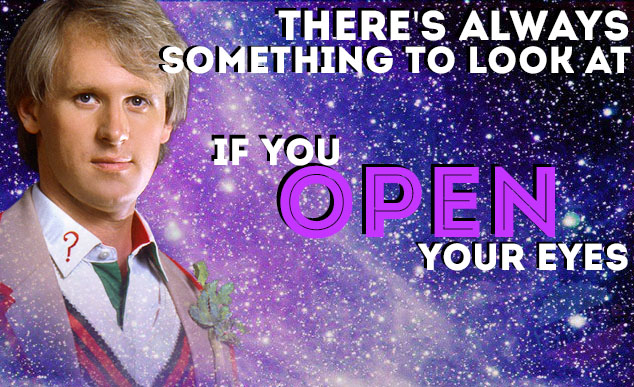
The irony is that Peter Davison has closed his eyes to the possibility of a woman playing the Doctor.
This isn’t just a problem in Doctor Who, this double standard shows up all over the place in everyday life: it’s not weird for girls to grab toys from both the boy’s and girl’s sections, but boy’s can’t be expected to like anything marketed to girls in pinks and pastels (and lord forbid your little boy likes Barbies). Further, movies like The Lord of the Rings, The Avengers and Man of Steel that feature mostly-white casts are considered movies of “mass appeal” while Redtails was considered a film for primarily black audiences.
The underlying problems here are that “men” and “masculine” things are ok to like and admire, regardless of your gender, but “women” and “feminine” things are expected to appeal to and be appropriate for women only. White is still seen as the default that appeals to everyone while films and stories featuring a primarily people of color cast are considered “niche.” This isn’t something we tend to do consciously, but the logic that “a Doctor played by a white man is a role model for anyone” and “a Doctor played by a woman can’t be a role model for men” and “a Doctor played by a PoC can’t be a role model for white people” only works if you really believe that it’s really that difficult for fans to look up to a hero who isn’t represented by someone in the dominant social group.
*It should also be noted that the gender essentialism in the idea that people are less likely to look up to their role models if those role models suddenly switch gender reflects a general level of accepted cultural transphobia. While much of the discussion about resistance to the idea of the Doctor played by a woman has centered around sexism, the homophobia and transphobia displayed in some of the discomfort and outright hostility to the idea of the Doctor changing genders and what that might mean about his sexuality and overall identity has barely been mentioned outside of LGBTQ circles. This is a topic worthy of its own post, but it needs to be acknowledged here, too. The bottom line is that the fact a lot of this debate about having a gender-fluid Doctor has some people asserting that if the Doctor changed genders, it would “ruin” the character and destroy their love for the show because the Doctor wouldn’t be “the same” anymore, which goes to show just how deeply entrenched our ideas about where the borders of gender and identity are, and what we find acceptable.
3. But what about the children? Seeing the Doctor change gender and/or race will be so confusing!
Maybe it’s just me, but given the reactions I’ve seen, I’m less concerned about young fans of Doctor Who getting terribly upset and confused by seeing the Doctor become someone who isn’t a white man than I am about adults. Yes, talking to one’s child about what it means that the Doctor has changed gender and/or race might be difficult, but then again, a lot of other things children may be confronted with in their favorite shows can result in similarly difficult conversations.
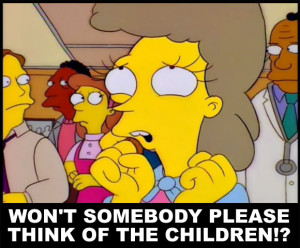 Watching the death of a character on-screen can be a difficult thing for children to process. How many times have people been killed on Doctor Who? How many times alone did Rory die? Torture can be a similarly tough subject. The Master’s treatment of the Jones family at the end of Series 3 was pretty terrible. We saw the immortal Capt. Jack Harkness killed repeatedly for the Master’s entertainment. And yet we haven’t seen a cultural wave demanding that Doctor Who never show another on-screen death because it would just be “too confusing or traumatic” for children to handle.
Watching the death of a character on-screen can be a difficult thing for children to process. How many times have people been killed on Doctor Who? How many times alone did Rory die? Torture can be a similarly tough subject. The Master’s treatment of the Jones family at the end of Series 3 was pretty terrible. We saw the immortal Capt. Jack Harkness killed repeatedly for the Master’s entertainment. And yet we haven’t seen a cultural wave demanding that Doctor Who never show another on-screen death because it would just be “too confusing or traumatic” for children to handle.
I don’t think it’s that a change in gender and/or race for the Doctor would be too confusing and difficult for children to understand so much as it would be uncomfortably confusing and difficult a topic for their parents to be able to talk about with their children. And in all fairness, those feelings are completely understandable. We’ve all absorbed varying degrees of toxic gender essentialism and racial bias because the culture we live in is still, by and large, built on a lot of institutionalized cissexism, misogyny and racism, none of which we are encouraged to examine too deeply, much less challenge outright. Whether it’s looking at how these things are reflected in the media we consume, the culture we live in or our own words, actions and beliefs, doing so can be a profoundly uncomfortable experience.
However, that discomfort, no matter how understandable, is not an excuse or a justification for hamstringing the show’s narrative possibilities. There are plenty of resources and advice for how to talk to kids about race, sexism and gender identity. Instead of looking at a change in the Doctor’s race and/or gender as a stumbling block, why not view it as an opportunity? And after all, Doctor Who has provided many openings to talk about racism and sexism already, so what’s wrong with a few more? I wish people would give their kids (and themselves) a little more credit when it comes to their ability to grasp that no matter what face the Doctor wears, the Doctor is still the same person where it matters.
4. But making the Doctor a woman and/or a person of color really would fundamentally alter who the Doctor is!
Apparently being “colorblind” and “genderblind” are cultural virtues only when it’s convenient. The Doctor has changed bodies and personalities eleven times (not counting Capaldi). Everything about him changes: his face, his body shape, his taste in clothes, his personality, his habits, even his taste in food. And yet we’ve been told time and time again that in spite of all that, the Doctor is still fundamentally the same person.
This is something fans of the show are explicitly expected to understand about the Doctor and why we’re expected to continue loving him even though his behaviors might be slightly different and he’s wearing a new face. Regardless of all those changes, the audience is meant to understand that the Doctor, no matter the appearance, is still the same independent, clever, compassionate, wayward child of Gallifrey who stole a TARDIS and ran away to see the universe, have adventures and protect those who can’t protect themselves. None of which are character traits inherently dependent on gender or race.
So, would changing the Doctor’s race and/or gender really irreparably alter who the Doctor is? I posit that having a Doctor who was a woman and/or a person of color wouldn’t fundamentally alter who the Doctor is so much as it would alter how the Doctor is able to interact with the (human) world around him.
Think about it – what would it be like seeing a Doctor, who doesn’t have the social authority that’s very often automatically conferred by being a white man, taking command of situations or acting as a figure of authority among humans? How would a Doctor, stripped of white male privilege, move within a society in which race and gender do affect one’s ability to move freely and be taken seriously? What kind of different stories could Doctor Who tell with this dynamic? How many more ways would there be for the show to examine what it means to be human, our relationships with each other, our greater society and shared histories? We could explore an even wider range of human experiences with a Doctor who was woman, and/or a PoC, because of how sexism often alters our available choices and how people react to us if we’re women, and how racism shapes distinctly different social realities for people of color.
Part of the appeal of Doctor Who has been how the show allows us to see through different perspectives and confront social narratives we may have taken for granted. And maybe that’s part of the resistance to the idea of a Doctor who is not a white man – we’re not used to seeing our heroes having to deal on an everyday basis with institutionalized social oppression from the position of the oppressed.Having to watch a woman Doctor deal with sexism or watch the Doctor deal with being a target of racism and racist societies as a person of color, would put us in the very uncomfortable place of acknowledging these realities.
5. But tokenism!
Having the Doctor portrayed by someone other than a white man isn’t automatically tokenism, even if it would make a portion of the fanbase happy. Tokenism often involves character demonstrating “some reduced capacity compared to the other characters,” having “bland or inoffensive personalities so as to not be accused of stereotyping negative traits” or having differenced “overemphasized or made ‘exotic’ and glamorous. (from Wikipedia’s entry.)
Portraying the Doctor as the show has always done – as a complex individual with inner conflicts, relatable motivations and diverse relationships – basically, as a well-written character, isn’t dependent on the Doctor remaining a white man. Writing the Doctor by relying on cliched stereotypes and tropes about gender and race, or downright ignoring how a change in race and gender can affect how the Doctor is able to move through human society, are surefire ways to create a token character. The choice of an actor who isn’t a man, or who isn’t white, to play the Doctor isn’t inherently a token one, unless the showrunners and writers choose to present the Doctor that way.
(I’m aware of the many fans who are skeptical about Moffat’s ability to write a nonwhite Doctor who isn’t a man, which is a viewpoint that I’m not unsympathetic to. Having that change handled well is crucial to how a nonwhite, not a dude Doctor, is received by the audience, because if it’s bungled badly enough, it can be used as proof that “See! It doesn’t work!” At the same time, thanks to how culturally-embedded, often unexamined sexism and racism is, no showrunner or writing staff is going to be “perfect” – and by the way, this is a problem that can be counteracted by having a wider range of diverse voices and experiences from more women, PoC, LGBTQ people, people with disabilities and so forth on writing staffs and among producers, showrunners, creators and executives – and waiting for that “right moment” may not happen unless we push for it.)
6. Making the Doctor anyone other than a white man is catering to special interests!
What was that we covered way back at the beginning already? White men are not the only or even overwhelming majority fans of Doctor Who. The fanbase is an extremely diverse one, with fans of color, women fans, LGBTQ fans, fans who are old or young or somewhere in between, all with a wide range of opinions on who they would like to see play the Doctor. And yet we’ve had fifty years of the Doctor as a white man. So whose “special interests,” exactly, are being “catering to” by the show casting another white man as the Doctor and why is that considered ok in contrast?
For fans of color and women fans to express a desire to see a little more of themselves reflected in a character they love, a character who by his very nature (Timelord, remember?) is not bound by race or gender, is not the equivalent of demanding that the Doctor only look like them, nor would it mean the Doctor could never again be a white man. As Karlyn Meyer astutely noted at our C2E2 panel about the “fake geek girl” idea, fans who are used to being “catered to” as the normal state of affairs can seem to develop a “persecution complex of like I have this thing, it was mine and now you just want to take it away from me.” Loving a fandom, loving those characters, is part and parcel with being a fan, and that’s completely ok, but that fandom and those characters don’t just belong to you, and sharing them with others doesn’t mean that you won’t still be “catered to.” It’s a wide world out there and the vast, overwhelming majority of heroes we have are still straight white cis men.
7. Ok, so maybe the Doctor doesn’t have to stay a white man, but changing the Doctor’s race and/or gender doesn’t “work” with the narrative and would feel forced!
As a writer, I’ll let you in on a little secret: The Narrative isn’t some independent, conscious force that has writers and characters at its mercy (nevermind what Redshirts says). It’s the writers who dictate the narrative. If a writer wants something to happen in the narrative, they’ll craft the narrative to make it work, it’s as simple as that.
Superman snaps General Zod’s neck in Man of Steel because that’s what Zack Snyder and David Goyer wanted to happen. Bruce Wayne walks away from being Batman in The Dark Knight Rises because that’s the ending that Christopher Nolan wanted. In both cases, the narratives were crafted so that those plot points were inevitable (with varying degrees of success). How well the writer pulls it off isn’t the point – the point is that the writer determines the story and how characters get from point A to point B, not the other way around. If the show runners and writers for Doctor Who can’t envision how to tell the story of the Doctor regenerating into a woman and having to deal with the hostility that women taking authority often face, or how to write the Doctor as a black man in Britain during the days of slave trade or a South Asian man in a Western European colony, and do those scenarios well, it’s because of the limitations of their imaginations, not due to limitations inherent in the narrative or character.
8. You’re just looking for something to complain about. If you really loved Doctor Who you’d accept the show the way that it is.
Of all the arguments I’ve seen and been on the receiving end of when talking about Doctor Who and casting, this is the one that moves me from frustrating disappointment to flat out fury, not just because of the logical fallacies involved, but because it’s dismissive, condescending and essentially saying that your willingness to criticize something you love means that you don’t really love it at all. One can love a thing and also understand and acknowledge that it is problematic. One can love a thing and say, “I wish it were better. Here’s how I think it could be better.” Loving something and pointing out its perceived flaws are not mutually exclusive choices.
Also, telling someone that they’re just looking for something to criticize because you don’t agree with their criticisms isn’t just a derailing dodge, it insultingly posits the person’s criticism as something they don’t take seriously or one they wouldn’t be making if they just understood Doctor Who better (so of course you need a lecture on the history of the show, the characters and everything in between as clearly you just don’t get Doctor Who).
The people who have spoken up with these kinds of criticisms of Doctor Who (much less all areas of fandom and geek culture in general) regularly receive targeted slurs, threats and a general level of toxic invective about how critics are trying to “take away their fandom” or “push traditional fans of the show out” or “ruin the show.” This abuse is predictably and consistently lobbied in response to critics saying that they wish the fandom they liked were a little more diverse and reflected more than just straight white cis people in it. This bears repeating the point made above in #6: Whenever societally marginalized groups ask to see a little more of themselves reflected in the fandoms they share with others, it’s as if they’ve said they want to see nothing but themselves in the fandom.
Dealing with these reactions is like getting whacked as an emotional and mental punching bag every single time we dare open our mouths, but sure, we’re totally speaking up for the funsies and not because we also love our fandoms and really believe in what we’re saying. And heaven forbid we have the temerity to get angry about it, because we’re being overly-sensitive, we’re over-reacting, and what’s our problem because “it’s just a show” and by the way, being angry means that any argument we make is now invalid and can be ignored because being emotional means one can’t possibly be rational. It goes without saying that anger about the Doctor not being a white man is often commiserated with and labeled as “completely understandable” rather than an impediment or reason to dismiss one’s opinion by comparison.
I may disagree with the people who think the Doctor can never be and should never be anything other than a white man. I may find their reasoning flawed and reflective of sexism and racism – unexamined or otherwise – and ask that they reconsider why they don’t want the Doctor to be a woman or a person of color. But the one thing I will never do is tell them that because they don’t want the Doctor to be anything other than a white man that their feelings are insincere and that they don’t really love Doctor Who because they feel that way. I don’t think it’s too much to ask for those people to at least extend that same courtesy to those they disagree with.
(I’m not even going to bother with the excuse that there just weren’t any qualified actors of color or women to play the Doctor because out of an entire world filled with talented actors, I can’t even take the argument that there weren’t any at all capable of playing the Doctor who weren’t white men seriously.)
At the end of the day, there’s no changing the fact that Capaldi is now our Doctor for the foreseeable future. I’m excited to see him as the Doctor, I hate that we need to wait until 2014 is over halfway done before we get to see him again, but I’m also disappointed in the reasons that we got him as our next Doctor and I’m pretty disgusted by the amount of (often unexamined) racism, misogyny and cissexism that I saw in response to the mere thought of a Doctor who wasn’t a white man. It’s such a shame that there were fans who show more imagination in coming up with rich, vibrant worlds in which the Doctor isn’t limited by gender or race (my favorite by far is by PaulHanley on deviantART, imaging Ruth Wilson (Luther) as the next Doctor) than the showrunners, producers and other fans. I’m eagerly awaiting where Doctor Who will take us next, but I also regret where Doctor Who could have gone if only people had been open to that journey. One that I hope we’ll eventually be able to take with the Doctor.

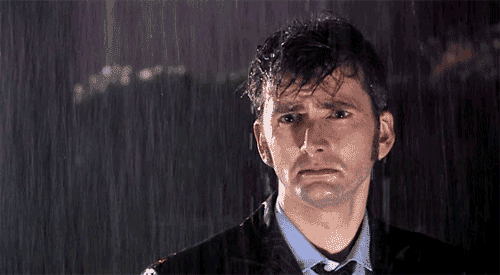
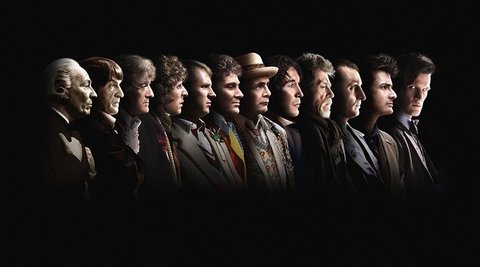
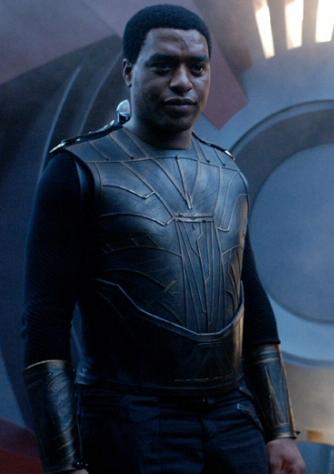
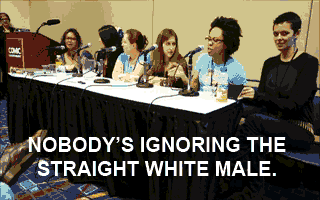
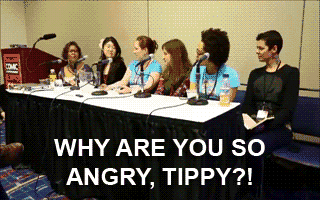
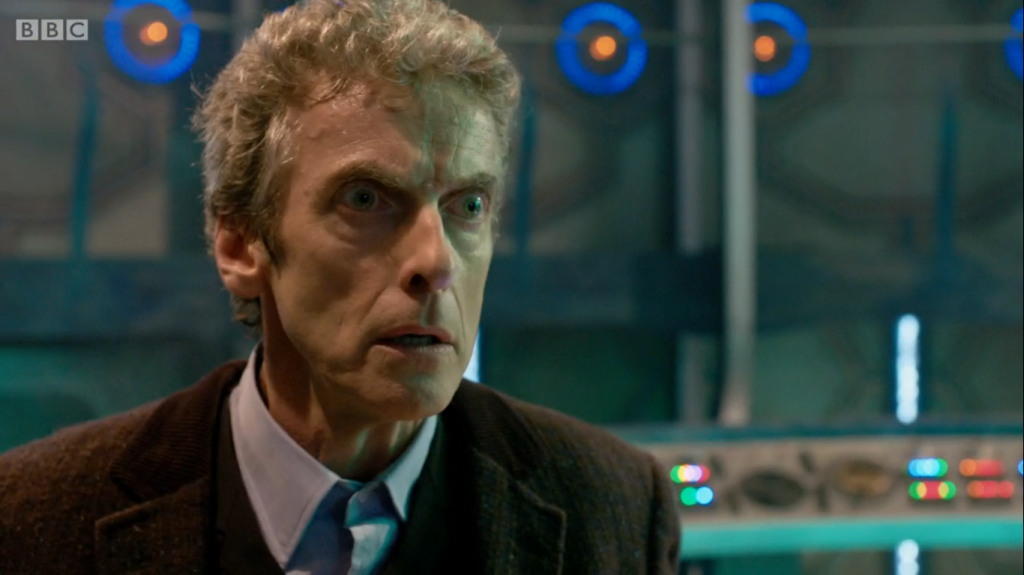
Thanks for a marvellous analysis here. Recollecting your childhood watching Pertwee in black and white, late at night, I presume you know about this page? (The similar page for Australia helped jog my memory as well.)
There’s never really a rush these days to comment on the new Doctor, as the obsessiveness of the überfans means the announcement of a departing Doctor now can never be suppressed, and which in turn sets the rumour mill a turnin’ like a hamster in a wheel up until the announcement is made – and even then five or six months might elapse before the handover episode airs, let alone they appear on screen as the Doctor in their own right.
Eccleston’s casting was announced a year out from broadcast in April 2004, and the news of his departure broke a year later almost to the day during the first run of the new series, with Tennant being the unlikely recipient of a way-early Christmas present. Tennant’s departure was announced in October 2008 over a year before he went, and Matt Smith’s casting soon followed in January 2009; unless there’s an Easter special about a year will elapse before Capaldi’s first show in autumn, which is plenty of time to reflect on the failures of the Doctor Who production team. (Perhaps the only recent Doctor-related casting to have been something of a total surprise was John Hurt.) The rumour mill coughed up Capaldi’s name in the day or two before the Next Doctor show in August, and late running horses often fare well in these races.
I had seen him in The Thick of It long before there was a rush to replace Matt Smith and frankly, he steals every scene he’s in – as Malcolm Tucker he’s commanding, brilliant, magnetic, and charismatic, qualities anyone would love to see in his Twelfth Doctor persona. Tucker is also quite a different character to Capaldi’s previous characters in the Doctor Who universes and the strength of casting in the past has always been in selecting good solid character actors, rather than going for movie star celebrity or sex appeal. So while I’m happy for Capaldi on a personal level at his achieving a childhood dream of playing that rôle, there’s also no possible defence of there being capable, solid character actors who also happen to not be white, and happen not to be male, who have been overlooked by the New Series casting. There is nothing, absolutely nothing, that says “good character actor must always mean someone’s who’s white and male”. Pointing at tradition as an excuse is nothing other than slovenliness, and feeble as well. The people doing that casting job have preconceived bias going, big time.
I think the main problem with the lack of diversity in Doctor Who must be sheeted home to the obvious and odious ‘boys club’ attitude of the production team – in particular the show runner/principal screen writer and his cadre of writing pals. The culture of male entitlement on display at the BBC, back in the old days when Verity Lambert was struggling to launch the show in the 60s (and recently documented in An Adventure in Space and Time), was bad enough, and it took twenty years before the team of John Nathan-Turner and Eric Saward gave female writers a very, very small chance: Barbara Clegg, Jane Baker, Rona Munro. The only woman to have gotten a writing gig in the ten years of the new series is Russell T Davies’ script editor Helen Raynor, who had to put up with monstrously misogynistic abuse from the ‘fans’ for her trouble. A solitary woman out of twenty-one writers – a little bit unbalanced, d’ye think?
During the hiatus after the 1989 cancellation of Doctor Who, one of the positive developments was the opening up of the writing pool to a wider range of talent in the ‘New Adventures’ by Virgin Books and the Big Finish audio plays – even if there was no Doctor Who on television any more, at least there was no shortage of good new writers after a dearth of good writing during the last years on the BBC. It was still overwhelmingly dominated by men, but it couldn’t be denied that some of the heaviest hitters were women. Initial signs in 2004 looked promising as Russell T Davies invited writers from that milieu, Rob Shearman and Paul Cornell to adapt some of their best previous work to television – if writers from the Virgin/Big Finish worlds were getting a gig, surely we would see contributions by Jacquelyn Rayner or Kate Orman eventually?
The answer has been most definitely, nope, nulla, zero, zilch. Both of the showrunners have shown a preference for only asking their friends from the boys writing club to pen episodes and the closed insularity of it – the cliquishness of it – clearly shows in their output. Worse, there is no sign of change upcoming if one looks at the likely suspects for writing spots in the 2014 series: Chris Chibnall, Neil Cross, Phil Ford, Neil Gaiman, Gareth Roberts all look likely to get another go. Has it been any better behind the camera? Not really; thirty-five or so directors thus far, only three of them women, and none of whom has gotten follow-up work after their initial contributions.
Once upon a time in another millennium, Moffat knew how to write female characters, even if they were subjected to a torrent of sexual harassment from Moffat’s male characters for the sake of ‘narrative’, merely because they existed in his fevered imagination. It was lazy, formulaic script-writing to do so in the 1990s and it’s even lazier now that Moffat can’t write strong, three-dimensional female characters to save himself without inappropriately sexualising them or involving them in highly sexist, regressive tropes. So for a start we would have to wait for change at the top before the slightest possibility of a female actor being considered to play the rôle, because Moffat would be utterly incapable of putting a woman in as the Doctor and treating her with any form of respect, from the writing through to the production aspects of costume, direction.
By that sexist double standard, there should have been a much better chance of a man of colour being cast as the Doctor, but there again I think the current production team have preconceived bias about the way they think a Doctor of colour would be played. Casting a person of colour shouldn’t be an example of tokenism, ever, but everything about the way the current production team thinks would set up defences of a non-white Doctor as being a token. Moffat obviously can’t leave any scab unscratched; it is no secret that Capaldi’s previous Who appearances will be referenced in the upcoming season to ‘explain’ why the new Doctor resembles Caecilius or John Frobisher (even John Nathan-Turner at his fanwankiest didn’t feel it necessary to justify his casting of Colin Baker, previously seen as Commander ‘Archie’ Maxil, within the storyline). I feel the casting of a non-white or non-male actor would undoubtedly be handled in a racist or sexist manner by the likes of Moffat, who has repeatedly put his privilege blindness on the public record.
Moffat has also been aided and abetted in his narrow, unimaginative choices by a disappointingly large cross-section of the Doctor Who fandom. Years ago I was amongst a group of LGBT Who fans posting on Usenet, and we were appalled then by the sex-negative, racist, sexist, homophobic nature of some of the fandom. Sadly it’s no different now, even with an influx of a new generation of younger fans who’ve grown up with the post-2005 series, and all of the same regressive sexist, racist, and transphobic attitudes are still there – mostly on fan forums like Gallifrey Base instead of rec.arts.drwho.
It’s a part of fandom that is scared of change or mere difference, and petrified of the fact that the show is capable of anything, provided its creators haven’t tied their own hands in knots. The Doctor Who formula has been changed numerous times in fifty years and having a white male as the lead character isn’t inherently part of it. It is not a given how someone – anyone – will play a rôle like the Doctor until they actually do it.
And Moffat’s idea of a humourous comment during the Next Doctor special are typical of that segment of fandom, and he shouldn’t play up to it. “I think it’s time the Queen was played by a man.” Aside from his own conceited ignorance (how could he overlook one of the finest performances on film of the rôle of Elizabeth I being that of the elderly Quentin Crisp, in Sally Potter’s Orlando?), how in any possible universe is this not a sexist comment being used to reinforce further sexism? For comparison, how could such a statement possibly be recast in racial terms rather than sexual ones, without being odiously and offensively racist?
As for why this matters: when I was a child I wanted to write for the show, or actually be in the show when I was older, though being an Australian was always going to cramp my style; nonetheless somewhere in my archives is an unsubmitted Doctor Who script written by a fifteen-year-old me, and later on I when moving to the UK seemed a possibility, idly considered being available as a casting extra if geeky, maladroit-looking people were needed to be part of the scenery – that would be more than enough. What upsets me is that there’s a whole segment of the current fandom who might aspire one day to write for the show, or play the star – surely one of the best rôles ever devised for television? – but the New Series is telling them, “you can’t be the Doctor – we might consider you for Martha Jones” and also along with that, “your stories aren’t important”. In other significant aspects, their participation probably wouldn’t be sought either, behind the scenes. That’s simply not good enough, given the ethos of the show. Revolution is needed, starting at the top. I’m not at all convinced it’s so hard and difficult to do better.
Pingback: Proof I Got to Talk About Doctor Who at the Chicago Humanities Festival – Geek Melange